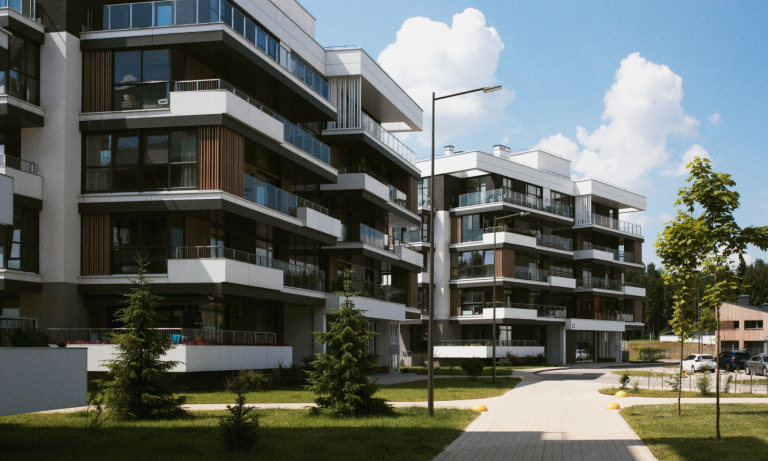You have some big property decisions ahead
The local relocation trend, more commonly known as semigration has become somewhat of a buzzword since 2020 when the world changed almost overnight. People across the globe found themselves with more flexibility regarding where they worked, their day-to-day life and what was important to them changed too.
This powered a wave of relocation within South Africa as opposed to leaving the country altogether. People were suddenly motivated to make some changes to improve their quality of life, wake up to sea views, enjoy small-town living, benefit from cheaper schooling or the certainty that comes with better security. People often tend to make this big move in the summer months, in anticipation of starting a new job or settling their kids at a new school.
It is a big move, and one which needs to be thought through and planned carefully. What’s more important than making some sensible property-related decisions to affect a soft landing for yourself in your new hometown?
Here are some questions to help make it a smooth move:
Have you done your research?
This seems logical right? Once you’ve made the decision to move, give yourself enough time to research your desired new hometown:
- Start with the online property portals, the easiest way to house hunt remotely. Look at the suburbs you want to live in, as well as those adjacent. This will give you an idea of which properties are on sale in the areas where you really want to live, as well as in the surrounding suburbs where you may find they’re cheaper, or more suitable.
- Remember to save your searches to receive notifications when new properties are listed with the specific criteria you’re looking for.
- These portals will show you which property practitioners are active where you’re house hunting. They can provide you with some good practical insight and personal experience. Contact them, explain your situation and they’ll become your eyes on the ground.
- Talk to friends and family you may know in those areas to further assist in your decision.
Buy or rent?
You’ll need to decide early on if it’s going to be best to rent or buy in your new hometown. This decision is often made for you, e.g., if there just aren’t many properties available for purchase, or if you complete an affordability calculation and the results show that you might need to temper your expectations regarding the size of home you want or the neighbourhoods you’re looking in. Look at doing the following:
- Complete an affordability calculation and pre-approval: Chat to one of our Home Loans Specialists and start your pre-approval now. With this outcome, go back to your property portal searches and ensure you’re looking only at those properties you can really afford.
- Ask property practitioners for property/suburb valuation reports. These will show you whether property prices have been increasing and at what rate, and whether buying into a specific suburb will provide you with long-term asset growth.
- If you can’t find affordable homes, you might decide to rent, and deciding on the term of your lease is important. There are often more properties on the market in the summer months, and as many people are on holiday, you may be able to snag a good deal.
- Bear in mind that it takes on average six months to buy a home (from the time you start house hunting to when the property transfers into your name), so plan accordingly when you’re looking at rental properties.
- In certain cities where property demand is high, you’ll find that it’s easier to live in a city and be able to view a sale property the day it goes on the market.
Have you planned a visit?
No decision to move to a new town/city should be done without a visit (or two). This is an important step which will help you in deciding:
- Which suburbs you’d be willing to live in, the facilities/schools in these neighbourhoods, traffic into and out of the area during busy times, commutes, safety and security etc.
- Adjacent suburbs might be an option for you if property prices are more affordable there. Visiting an area may help you understand why a suburb is cheaper to buy in though, so be on the lookout for subtle signs that may cause this.
- It is also a good idea to look at some “out there” options in terms of areas to live in, you never know until you visit them. Meet with some of the property practitioners you’ve chatted to during your research process.
Schedule in, if possible, visits to some properties on sale/to rent. This will cement the research you’ve already done and confirm some of the calls you might have made already.
Are you going to sell or rent?
If you’re already a homeowner, you’ll no doubt have already thought through whether you’ll sell your current home when you move or rent it out, and let it pay itself off.
If you’re able to answer the following questions, you’ll be able to decide relatively easily. It often comes down to affordability, and be sure to discuss these two options with your Home Loans Specialist when doing your pre-approval and have a view of the numbers below when completing your pre-approval:
- What is your house currently valued at? You can get one or two valuations from property practitioners in your suburb. With this figure in mind, make sure you know the outstanding balance on your current home loan and what costs you’ll pay to sell a house (e.g. commission to the property practitioner).
- Chat to neighbours or property practitioners to get a sense of the rental market and what prospective tenants would pay for a property like yours. And what it would cost you to have a managing agent handle the property rental process on your behalf (which is recommended if you live elsewhere).
With some research, asking as many questions as you can think of and a visit (or two!) to your new prospective hometown, you’re in for a smooth transition.










































